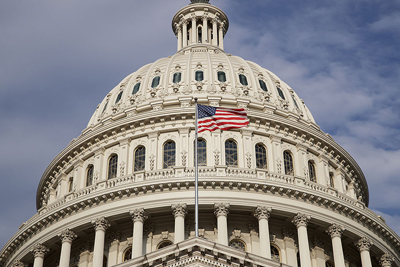It's Time to Restore the Integrity of the ADA
 Last year, Jerry’s Artarama Art Supplies in West Palm Beach, Florida was sued for a toilet paper dispenser that was not situated at the correct height. In 2016, a popular Colorado restaurant was forced to close its doors after a person from Florida sued the restaurant for its incorrect positioning of urinals in the men’s restroom. Another suit alleged the pool of an Atlanta hotel lacked a pool lift, but the hotel’s pool was permanently closed and covered; the plaintiff had never visited the property.
Last year, Jerry’s Artarama Art Supplies in West Palm Beach, Florida was sued for a toilet paper dispenser that was not situated at the correct height. In 2016, a popular Colorado restaurant was forced to close its doors after a person from Florida sued the restaurant for its incorrect positioning of urinals in the men’s restroom. Another suit alleged the pool of an Atlanta hotel lacked a pool lift, but the hotel’s pool was permanently closed and covered; the plaintiff had never visited the property.
These serial plaintiffs shake down business owners who are forced to either settle or go to court. In many cases, the plaintiffs issue demand letters that threaten to bring a lawsuit for an ADA violation unless the business pays them to drop the lawsuit. These letters frequently fail to inform the business owner exactly what the alleged violation is. So, the business chooses to pay the ransom and put the potential lawsuit behind them. Small “Mom and Pop” business simply cannot afford costly attorneys, so they settle. This leaves the alleged violation unfixed and the Americans with Disability Act (ADA) abused.
These businesses are a few of the thousands of businesses that have been sued under Title III of the Americans with Disabilities Act by a growing cottage industry of unscrupulous attorneys who seek monetary settlement as a result of these easily correctable violations – many of which are not visible to the naked eye. In an alarming number of cases, it is obvious that the plaintiff never visited the property it filed a lawsuit against. Serial Plaintiff Howard Cohan has filed 1,114 ADA Lawsuits since 2012, making him one of Florida’s most prolific ADA abusers. What’s worse? He’s never visited many of the small businesses he has sued, instead hiding behind a computer, using mapping programs to determine if a business has an alleged violation.
As vigorous supporters of the letter and spirit of the ADA, I recognize the tremendous positive impact this monumental law has had on our society. There should be consequences for businesses that fail to comply with the ADA, but the law’s purpose is being threatened by attorneys looking to cash in. As the lead co-sponsors of H.R. 620, the ADA Education and Reform Act, I am seeking to improve the law and ensure that its primary purpose – to improve access – is strengthened. This legislation is a reasonable, appropriate, and bipartisan response to address an unintended consequence of one section of the ADA. This result causes businesses who make a good faith effort to comply with the ADA to spend an inordinate amount of time and money responding to demand letters and defending frivolous lawsuits.
These “drive-by” lawsuits all too often create a negative impression about the goals of this important law. Suits of this kind saw a 14 percent increase in 2017, and the number has more than tripled since 2013. “Demand letters” are not counted in this number, however, they are on the increase as well. Many businesses simply pay the demand as opposed to hiring a lawyer to defend themselves, which encourages the practice. Legislation similar to H.R. 620 has been introduced in Congress for almost two decades and was first introduced by Sen, Daniel Inouye (D-Hawaii), a severely wounded World War II veteran and longtime advocate for the disabled community.
Passing H.R. 620 is good for all stakeholders. Simply having notice of claimed violations with a sufficient level of detail and the opportunity to cure within a limited time period prior to filing a lawsuit will eliminate the abusive tactics that have become commonplace. Barriers to access will be removed more quickly, providing the access that the disabled community needs and deserves, and business owners can re-direct resources from costly litigation to actual remediation of ADA violations. A vote in favor of H.R. 620 will restore the integrity of the ADA and protect the spirit of this historic, important law.








